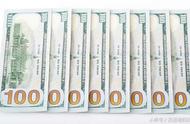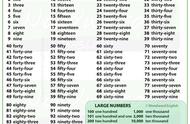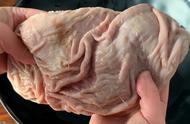
英语中“年份、日期、时间、数字、温度、门牌号码”的读法
1.年份
关于四位数年份的读法有下列几种情形:
1)一般情况下,将表示年份的四个数字按前后分为两组,每一组的数字都按基数词来读。例如:
1865年读作 eighteen sixty-five
1998年读作 nineteen ninety-eight
2)如果前两个数字为非“零”数字,后两位数分别为“零”,则先读出前两位数,然后将后面的两个“零”读为 hundred。例如:
1900年读作 nineteen hundred
1800年读作 eighteen hundred
3)第三个数字为“零”(其他数字不是“零”)的年份的读法应当将该“零”读为O[u]。例如:
1809年读作 eighteen O nine
4)关于千年的一些读法。
2000年读作 two thousand
2008年读作 two thousand and eight(或twenty O eight)
1008年读作 one thousand and eight(或ten O eight)
另外,还有一些非四位数的年份,它们有两种读法:一种是按照基数词的方法来读,另一种是一个一个数字来读。例如:
531BC读作 five three one BC(或five hundred and thirty-one BC)
since the “1950s” 译作:在20世纪50“年代”之后
2.日期
英语日期的读法、写法和汉语不同,要注意区别。英语中年、月、日的表达方法是“月份 序数词,年”。2001年4月2日应该写成:April
2nd, 2001,读成:April the second, two thousand and
one。一般情况下,序数词是在基数词后加-th,但有几种特殊情况,可按下面规律来记:1、2、3单独记(即first, second,
third),8后少t,9少e(即:eighth, ninth),5、12变ve为fth(即fifth,
twelfth),整十位数变y为ie再加th(如twentieth),二位以上只将个数变序数词(如thirty-second)。
例如:
October 31(October 31st)读作October(the)thirty-first
August 26(August 26th)读作August(the)twenty-sixth
日期的表达英式和美式有所不同,请注意区别。
在日期的写法上,英式先写日子,美式先写月份。
英1999年4月6日=6th April l999
美1999年4月6日=April 6,1999

在读法上,英国人有两种表达方式:
1.April the sixth,nineteen ninety-nine
2.The sixth of April,nineteen ninety-nine
美国人则一般这样表示:April sixth,nineteen ninety-nine(省略“the")
3.时间
时间的读法有以下一些特点:
1)可以直接按照表示时间的数字来读。例如:
10:56读作 ten fifty six
8:30读作 eight thirty
2)正点后的前半小时,通常说几点“过”(past)几分。例如:
9:25读作 twenty-five past nine
2:16读作 sixteen past two
3)正点后的后半小时,通常说几点“差”(to)几分。此时,所说的“几点”指的是“正点”后的下一个“正点”。例如:
10:55读作 five to eleven
8:40读作 twenty to nine
4)英语中的15分钟也可以说成“一刻钟”(a quarter)。例如:
4:15读作 a quarter past four
7:45读作 a quarter to eight
45分钟读作 three quarters
(5)钟点的读法
钟点的读法分英式和美式两种,我们应对此加以注意。
英7:00 seveno’clock a.m./p.m.
8:15 a quarter past eight/eight fifteen
9:30 half past nine/nine thirty
9:45 a quarter to ten/nine forty-five
10:03 three(minutes)pastten/ten ohthree
美用法基本相似,只是英国用past之处,美国通常用after;英国用to之处,美国常用fo。
美5:15 a quarter after five/five fifteen
9:30 nine thirty/half past nine*
9:45 a quarter of ten/nine forty-five
9:55 five of ten/nine fifty-five
当用于军事命令和旅行时间表时,其读法如下:
07:00 (Oh)seven hundred hours=7:00a.m.
09:15 (Oh) nine fifteen=9:15a.m.
12:00 twelve hundred hours=midday/noon
13:45 thirteen forty-five-1:45p.m.
19:00 nineteen hundred hours:7:OOp.m.
23:05 twenty-three(Oh)five--11:05p.m.
24:00 twenty-four hundred hours=midnight
24:10 twenty-fourten’ten past midnight

4.数字
1). 整数和小数的读法
3.24可以读作three point twenty-four或three twenty-four。在美国买东西都要含税,
所以价钱多半都带有小数点, 通常小数点可以说 point, 也可以直接省略。 另外比较正式的说法为 three dollars and
twenty-four cents, 但是在一般日常生活中几乎是听不到这种读法,而是直接读为 three
twenty-four。在美国开支票的机会很多,
要注意的是,支票上小数的写和读与平时有所不同。在支票上,金额不仅要用阿拉伯数字写出,而且还要用英语在金额栏的最左边写出。其中整数部分的第一个字母要大写,
小数部分则用 xx/100 来表示, 并在最后加上 only。例如 12.87 写为Twelve dollar and 87/100 only。
1,245 可读为 twelve forty-five,one thousand two hundred and forty-five 或
twelve hundred and forty-five。一般来说, 四位数的读法是两个数字两个数字一起读,
如12-45。但有时为了让对方听得更清楚(特别是跟钱有关的时候),会把 thousand 和 hundred 读出来, 像上面的第二种读法。 另外,
像第三种读法,美国人也很喜欢把 one thousand two hundred 直接说成 twelve hundred,例如1,200
可以读为twelve hundred,当然也可以说 one thousand and two hundred,这就是我们从教科书上学的读法了。
五位数的读法是前两个数一组, 后两个一组,中间的自己一组。例如 35,891 经常读为thirty-five thousand eight
hundred and ninety-one。而六位数如100,000 则读为one hundred thousand。由于在英语中没有十万这个字,
所以十万要用 one hundred thousand, 一亿要用 one hundred million。这两个要多练习, 不然很难熟练运用。
整数中比较特殊的就是电话号码了,读电话号码的原则是在清楚的基础上,越简单越好。人们在读电话号码时,习惯一个数字一个数字地说, 以求清楚,
但有时为了方便起见, 也会以十位数为单位, 两个两个一起说。例如770-2145 可以读为seven seven zero, two one
four five,也可以读为 seven seven o, twenty-one
forty-five。总之,不管如何读,一定要清楚,不要引起歧义。
2). 分数和科学记数的读法
1/2 可以读为one half 或 one over two。1/2 的说法跟 1/3、1/4 都不一样, 它不读为 one
second,而要用 one half。而 one of two 常用在数学上, 强调 1 除以 2, 这种说法在日常生活中用得比较少。至于1/3
是one third,1/4 是 one fourth等,大家对这种说法都已经很熟悉了,在此不多说,但要注意两点:在日常生活中,用 one
quarter 表示1/4比用 one fourth 更多一些;2/3 要说 two thirds, 也就是说分母那个 third 要加
s,不要忘记。
科学记数如1.23×10-4 可读为 one point two three times ten to the minus
four(negative four);one point two three times ten minus four 或 one point
two three ten minus four。第一个是最正确的说法,
但有时为了简便会有不同程度的省略。像第二、三个省略适用在别人知道你在说科学符号的场合,例如老师上课时,或同学讨论功课时,不然别人有可能会误会你的意思。
(1)基数词的读法
我们先从基数词人手。首先掌握三位以内数字的读法,因为它是多位数字的基础,一旦熟练掌握,再借助一个逗号,便可轻松应付四位以上任何庞大的数字。我们可以通过例子来说明这一点。
①3—5位数的读法
202读作:two hundred(and)two
234读作:two hundred(and)thirty-four
1, 234读作:one thousand two hundred(and)thirtyfour
但是在读法上须注意以下几点:
a.在英式英语中,一个数的最后两位(十位和个位)得用“and\'’,但美式英语中则不用。如:3,077读作:U.S:three thousand
seventy—seven.
b.不定冠词“a”只在数的开头才和hundred,thousand等连用。试比较:
146读作:ahundred(and)forty-six
2,146读作:twothousand,one hundred(and)fortysix
c.1,000这个整数我们说athousand,在and前我们也说a thousand,但是在一个有百位数的数目前就得说one
thousand试比较:
1,031读作:a thousand,(and)thirty-one,
1,150读作:one thousand,one hundred(and)fifty
d.hundred,thousand和million这几个词的单数可以和:“a”者“one”连用,但是不能单独使用。在非正式文体中“a”比较常见;当我们说话比较准确的时候就用“one”试比较:
I Want to live for a hundred years.
The journey took exactly one hundred days.
e.我们常常说eleven hundred(1,100),twelve hundred(1,200)等,而不说one thous and one
hundred.从1,100到1,900之间的整数,这种说法最常见。
5位以上数字的读法
11,234读作:eleven thousand two hundred(and),thirty—four
155,721读作:one hundred(and)fifly-fivethous and seven hundred(and)twenty-one
6,155,702读作:six million one hundred(and)fifly-five thous and seven hundred
and two
26,000,008读作:twenty-six million and eight
326,414,718读作:three hundred(and)twenty-six mil-lion,four hundred(and)four
teen thous and,seven hundred(and)eigh-teen
4,302,000,000读作:four billion three hundred(and)two million
由以上一组数字可以看出,多位数由右向左每3位有一逗号,这个逗号的作用非同小可,在记忆数字时,它可以帮我们很大的忙!
逆向第一个逗号读thousand;向左再推三位,第二个逗号读million;第三个逗号读billion;第四个逗号就是trillion。这几个逗号的作用在于,当我们听到若干thousand时,立即写下这个数,并在其后打一个逗号,并留出3位;当听到若干million,则写下数字,并在其后打一逗号,留出6位;听到若干billion,方法同上,在后面留出9位,后面的million、thousand依此法类推,让所有数字各就其位。
例如,当你听到“twenty thous and andfour\'’写出20,“and
four”意为后一组仅有个位,即:004,那么,这个数字完整地写下来就是20,004;若听到“six million twenty thousand
four hundred and
twenty—three,”则第一步先写:6,020,再将最后一组423写在第一个逗号后面。完整的翠字为6,020,423。若听到“One
billion,one hundred and four million,twenty thousand four hundred and
twenty-three”:主第一步写出1,104,第二步接下去写第三组020,第三步二写423,这样得到的完整数字便是1,104,020,423,由此:见这个三位一逗号的作用有多大。只要我们在平时的训练中加强对三位数读写的训练,能分辨“ty”与“teen\'’,并能借助这个不可缺少的“逗号”,无论数字多么大,也不会对我们造成障碍。
(2)序数词的读法
lst读作:(the)first
2nd读作:(the)second
3nd读作:(the)third
4th读作:(the)fourth
20th读作:(the)twentieth
21st读作:(the)twenty-first
22nd读作:(the)twenty-second
23rd读作:(the)twenty-third其它以此类推。
(3)分数、小数和百分比的读法
A.分数
分数中分子用基数词表示,分母用序数词表示。先读分子,后读分母。当分子大于1时,分母要加“s”。例如
1/2读作:a/one half(口语中更倾向于用“a”代替“one”)
1/3读作:a/one third
1/8读作:an/one eighth
1/4读作:a/one quarter(fourth)
2/3读作:two thirds
1/5/9读作one and five ninths
比较复杂的分数常常用over这个词表示。如:
317/509读作:three hundred and seventeen over five hundred and nine
3/4hour,7/lOmile则说three quarters of an hour(三刻钟),seven tenths of a
mile(十分之七英里)。
b)百分比
读百分比只需在相应的数字后加“percent"。如:
25%读作twenty-five percent
11.3%读作eleven point three percent
4 温度
表示温度有华氏(Fahrenheit)和摄氏(Centigrade)两种。英美均使用华氏作为温度的计量单位。
摄氏用法现已日渐普及。
15℃读作:fifteen degrees Centigrade(或Celsius)
32℉读作:thirty-two degrees Fahrenheit
0C读作:nought degrees Centigrade
-5C读作:five degrees below zero / -30℃ 读作:minus 30 degrees celsius
门牌号.
门牌号遇三位数分别读出各数字,遇四位数时则分成两半来读。
例如:
Room 302读作:Room three Of two/three zero two
3491 King Street读作:thirty-four ninety-one King Street
,













